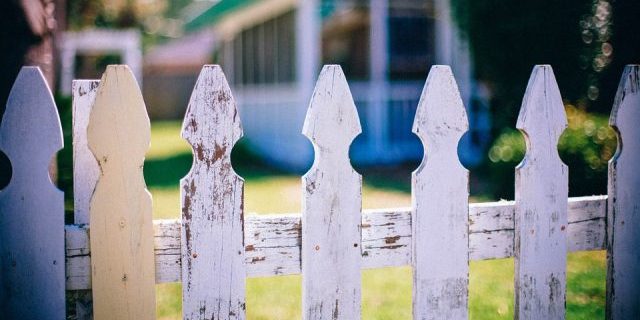
We talk a lot about the importance of boundaries in healthy relationships, but what exactly are boundaries?
Like countries have physical boundaries to show where one ends and another begins, we also have personal boundaries. Personal boundaries are mental lines between what we are and are not ok with. Different people have different boundaries based on their personal experiences, fears, curiosities, and more. Some of our boundaries might be rigid and unchanging. Others may be soft and malleable, or even feel confusing.
Boundaries are important because they help you stay true to yourself. Keeping boundaries in relationships helps make sure that you and your friend/partner/family member/whoever are unique people with separate lives.
Setting boundaries can be hard. But it’s a lot easier when you know what your boundaries are in the first place.
Everybody’s boundaries are different, and figuring out your own requires self-awareness and reflection. Your boundaries will probably change throughout your life—that’s normal and completely ok! Examples of common boundaries include not sharing passwords or showing up at your house unannounced. People also have boundaries when it comes to sex and physical touch. It’s important to know your partner’s boundaries and practice enthusiastic consent.
Here are a few tips on how to begin your boundary-exploration journey:
1. Think about how you’d like to be treated.
Write down words, sentences, or bits of poetry or lyrics that come to mind. Doodle or describe any images that pop into your head.
2. Explore your current boundaries.
Think about relationships you have now or have had in the past with friends, significant others, family members and authority figures. What feels/felt good in those relationships? What feels/felt bad? Jot down any words, thoughts, ideas, images, stories or memories that come to mind. Think about when you spoke up, when you didn’t, and whether or how conflicts got resolved. Circle or highlight any patterns you notice. How does the first list compare to this one? Be honest with yourself and remember that your feelings are valid. The more honest with yourself you are, the clearer your boundaries will be.
3. Think about your past.
Self-knowledge is power. Ask yourself: When you were younger, who did you feel safe around? Who did you feel let down by? Who were you closest to? What were your parents or caregivers like with you when you were younger? What did you learn from them? Did you feel loved? How did you know you were loved? What did you expect from your parents/caregivers growing up? Did you ever feel lonely or overlooked? Or overwhelmed, like they were “too much”?
Ask yourself: Am I recreating any past hurts, fears or insecurities? Am I demanding things from my partner that I didn’t get from my parents, or that should really come from myself? Write down your thoughts, feelings and memories.
Thinking through your relationships and boundaries can feel freeing and revelatory, but it can also be scary. These are big, complicated questions that you may not have the answers to right away. Remember to create time to practice self-compassion and self-care.
Once you have a better idea of what boundaries you want to set in your relationships, it’ll hopefully be easier to advocate for yourself.
Of course, that can still be really hard. If you’ve had boundary issues with someone before, or you’re starting a new romantic relationship, ask them to sit down to talk about what you want from your relationship, what you’re not ok with, and what their boundaries are. Remember that it’s OK to have different boundaries, so long as you both respect them. It’s not ok to dismiss or put someone down for their boundaries, or make them justify their boundaries.
If you ever cross someone’s boundary, as hard as it may be, it’s really important to apologize, ask how you can make it right, and commit to not crossing that boundary again.
If someone has ignored your boundaries, you may be feeling hurt or confused.
Remember that it is NOT your fault. How you handle your relationship with that person is up to you. The most important thing is to do what you need to do to take care of yourself. That may be talking to a friend or trusted adult about it, journaling, going for a run, or just taking some time for yourself. Some boundary crossings may be assault or abuse, or otherwise feel deeply painful. Remember: you are not alone. Your emotions are valid.
It may be helpful to talk to a therapist. They can help you work through your emotions. Despite common assumptions, therapists aren’t just for people with mental illnesses—they’re for anyone looking to grow as a person. If you’re 10-22 years old in NYC, you can make a free, confidential, non-judgmental therapy appointment at the Mount Sinai Adolescent Health Center.
Zuleyma Rivera, LMSW is a clinical social worker with a specialization in children, youth and families, and in treating trauma in adolescents. Zuleyma has worked in community-based preventative services agencies and outpatient substance use disorder clinics, and as a home-based family therapist and school-based clinician. She is currently an outpatient clinical social worker at the Mount Sinai Adolescent Health Center in Manhattan.
